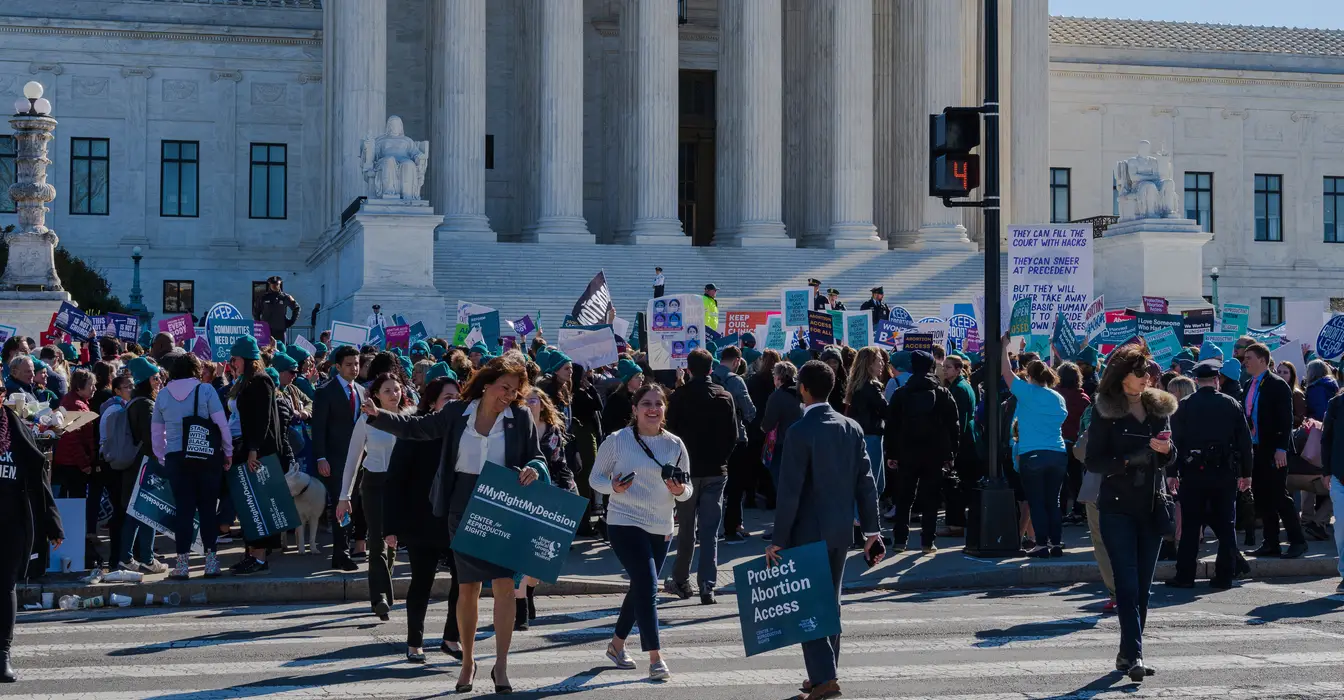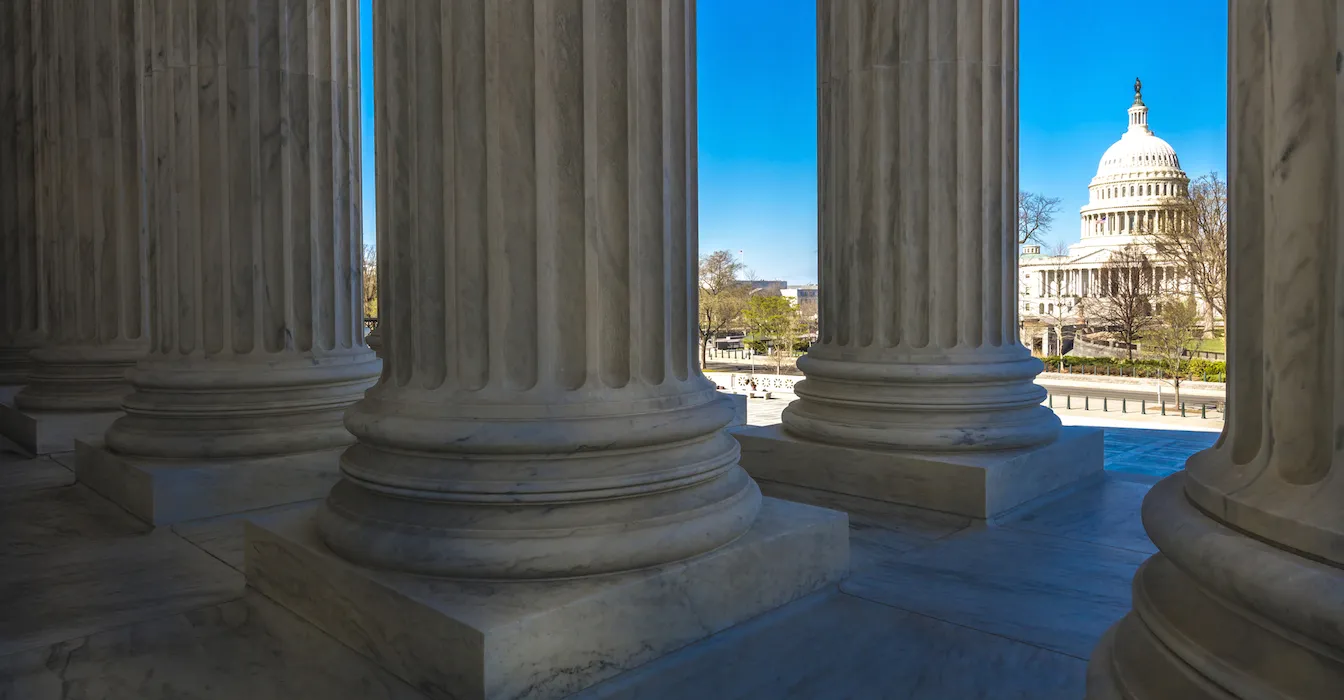What insulates Texas’ virtual abortion ban from federal court intervention, its supporters maintain, is its reliance on the general public rather than state officials for enforcement.
But that vaunted resilience may be an illusion.
In twin hearings before the U.S. Supreme Court on Monday, attorneys for Texas and people who might file lawsuits under Senate Bill 8 grappled with the proposition that potential plaintiffs might still be viewed as agents of the state and just as vulnerable to an injunction as an elected or appointed official.
“A state is an idealized entity,” that depends on the designation of people to act on its behalf, Justice Sonia Sotomayor told Jonathan Mitchell, a former Texas solicitor general who helped craft the measure banning abortions as soon as a fetal heartbeat can be detected and is now representing private parties who might wield it against abortion providers in civil suits.
“If a state is designating, whether it’s ordinary citizens or attorneys general or district attorneys, if it’s designating those people to act for it, then why aren’t those people bound by any judgment that says, ‘State, what you’re doing is unconstitutional and no agent of yours can enforce this law?’” she asked.
It was one of a barrage of thorny questions posed to him, U.S. Solicitor General Elizabeth Prelogar and Texas Solicitor General Judd Stone in arguments on United States v. Texas, the government’s claim that the Lone Star State measure undercut the Constitution’s supremacy clause, and to Stone and Marc Hearron, the attorney representing abortion providers in Whole Women’s Health v. Jackson.
In Whole Women’s Health, justices are considering whether a state can insulate a constitutionally prohibited law from federal court review by delegating its authority to the general public. The court previously refused to grant an injunction blocking the Texas law before it took effect.
TEXAS 'WASHED ITS HANDS'
While noting “serious” constitutional questions about the bill – which prohibits abortions as early as six weeks into a pregnancy, far shorter than the roughly six months allowed under Roe v. Wade – the court cited novel procedural questions that prevented the typical injunction against an official in charge of enforcement.
Mitchell, who previously argued to the 5th Circuit Court of Appeals that S.B. 8 “boxed out the judiciary from entertaining pre-enforcement challenges” – and that all states had the right to attempt to counter “morally reprehensible” rulings like Roe – rejected the idea that private citizens could be considered state actors.
Texas “is not in any way directing the activity,” he told Sotomayor. “The state has passed a law that gives them the option to sue and then it has washed its hands of the matter.”
COOPER V. AARON
Justice Clarence Thomas, an appointee of President George H.W. Bush who celebrated the 30th anniversary of his investiture on the high court on Monday, posed a similar query to Stone, the Texas solicitor general, in hearings broadcast on the court’s website and C-SPAN.
“Why wouldn’t private individuals be considered private attorneys general” if they are enforcing a statewide policy, he asked.
“They aren’t subject to the state’s control,” Stone answered. “They don’t have access to the state’s investigatory resources” and the state can’t take the case over.
Justice Stephen Breyer, meanwhile, asked how Texas’ actions differed from those of former Arkansas Gov. Orval Faubus and the state’s legislature opposing desegregation of Little Rock schools in 1957.

Protestors hold an abortion-rights rally in front of the Supreme Court in March 2020, six months before the death of Justice Ruth Bader Ginsburg enabled the Senate to create a 6-3 majority for conservatives.
The governor called out the National Guard to prevent integration mandated under the Supreme Court’s decision in Brown v. Board of Education, backing down only when then-President Dwight Eisenhower sent in federal troops to back up the court’s decision.
When the school district later sought to delay integration because of the violence that followed, the Supreme Court rejected the request in Cooper v. Aaron, decided in September 1958.
'VIOLATING HIS SOLEMN OATH'
“This court cannot countenance a claim by the governor and legislature of a state that there is no duty on state officials to obey federal court orders resting on this court’s considered interpretation of the United States Constitution,” the justices ruled then. “No state legislator or executive or judicial officer can war against the Constitution without violating his solemn oath to support it.”
Mitchell, whose presentation followed that round of questioning, said his clients “intend to sue those who violate S.B. 8 but only in response to conduct that falls outside the protections of Roe” and Planned Parenthood v. Casey.
Casey, decided in 1992, found that laws placing an “undue burden” on women seeking to obtain an abortion before viability, medical jargon for the point at which a fetus can survive outside the womb, are unconstitutional.
S.B. 8 authorizes suits against anyone involved in an abortion except the women patients themselves, guaranteeing a minimum award of $10,000 and barring defendants from recovering any legal expenses.
When Justice Brett Kavanaugh questioned whether state court clerks and judges were becoming enforcers by accepting and ruling on complaints filed under S.B. 8, the terminology used in the Shelley v. Kraemer decision barring judicial enforcement of racially restrictive real estate covenants, Mitchell argued that they were not.
“Adjudicating a case and docketing a complaint is not enforcement,” he said.
Sotomayor brushed aside such characterizations as well as the idea that Texas had safeguarded itself from liability.
“We have recognized that washing hands doesn’t insulate a state or insulate people acting on behalf of the state,” she said. “How can a state designate a private person to act under its laws to violate a personal constitutional right?”
CONSTITUTION 'CANNOT BE THAT FRAGILE'
In both hearings, the arguments presented by the state and other supporters of S.B. 8 are startling in their breadth, Prelogar – who succeeded acting Solicitor General Brian Fletcher late last week – asserted at the conclusion of the session.
“Texas’ position is that no one can sue, not the women whose rights are most directly affected, not the providers who have been chilled in being able to provide those women with care and not the U.S. in this suit,” she said. “They say that the federal courts just have no authority under existing law to provide any mechanism to remedy this harm.”
If that’s the case, “then no constitutional right is safe, no constitutional decision from this court is safe,” she said. “That would be an intolerable state of affairs, and it cannot be the law. Our constitutional guarantees cannot be that fragile, and the supremacy of federal law cannot be that easily subject to manipulation.”


